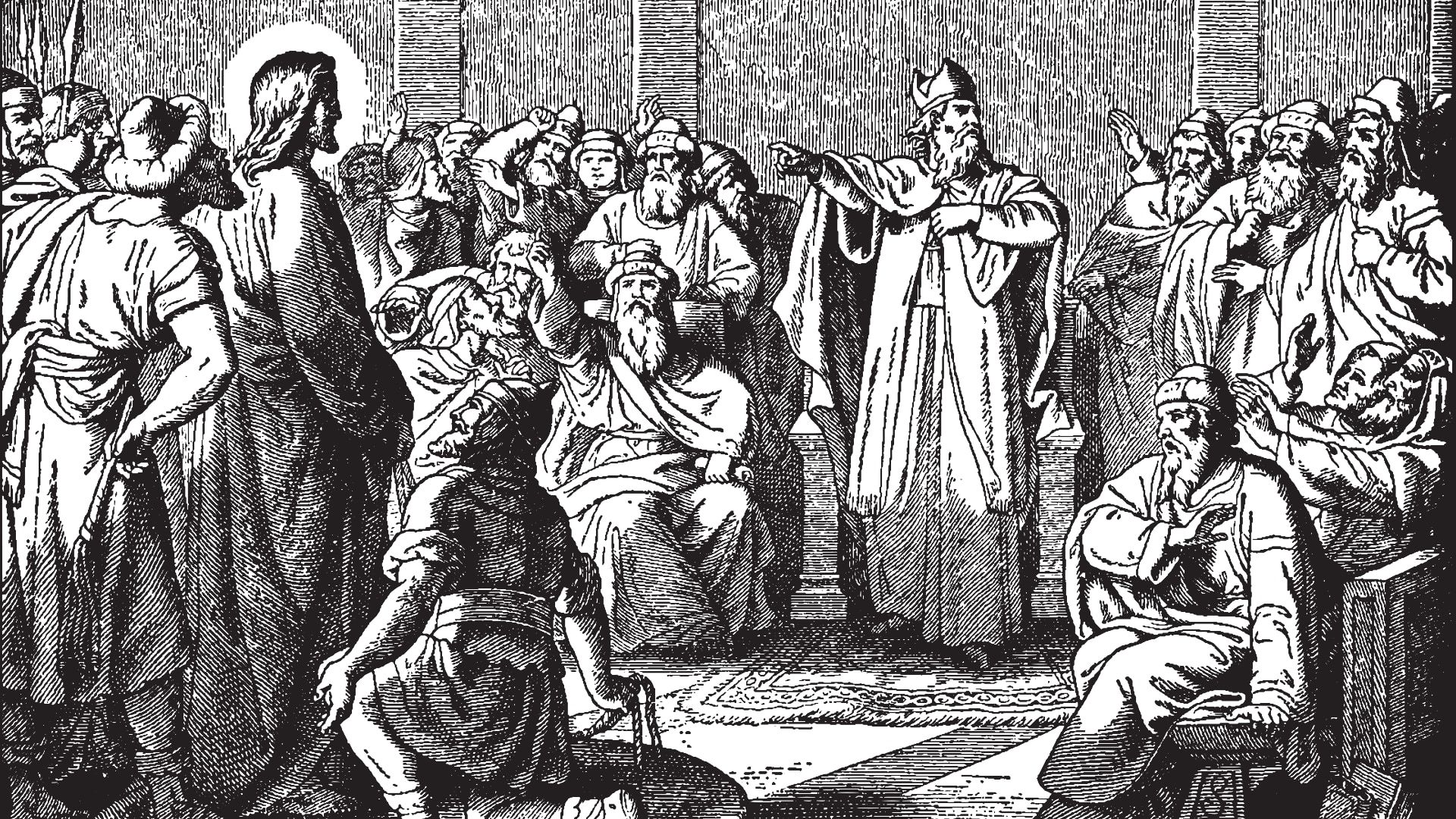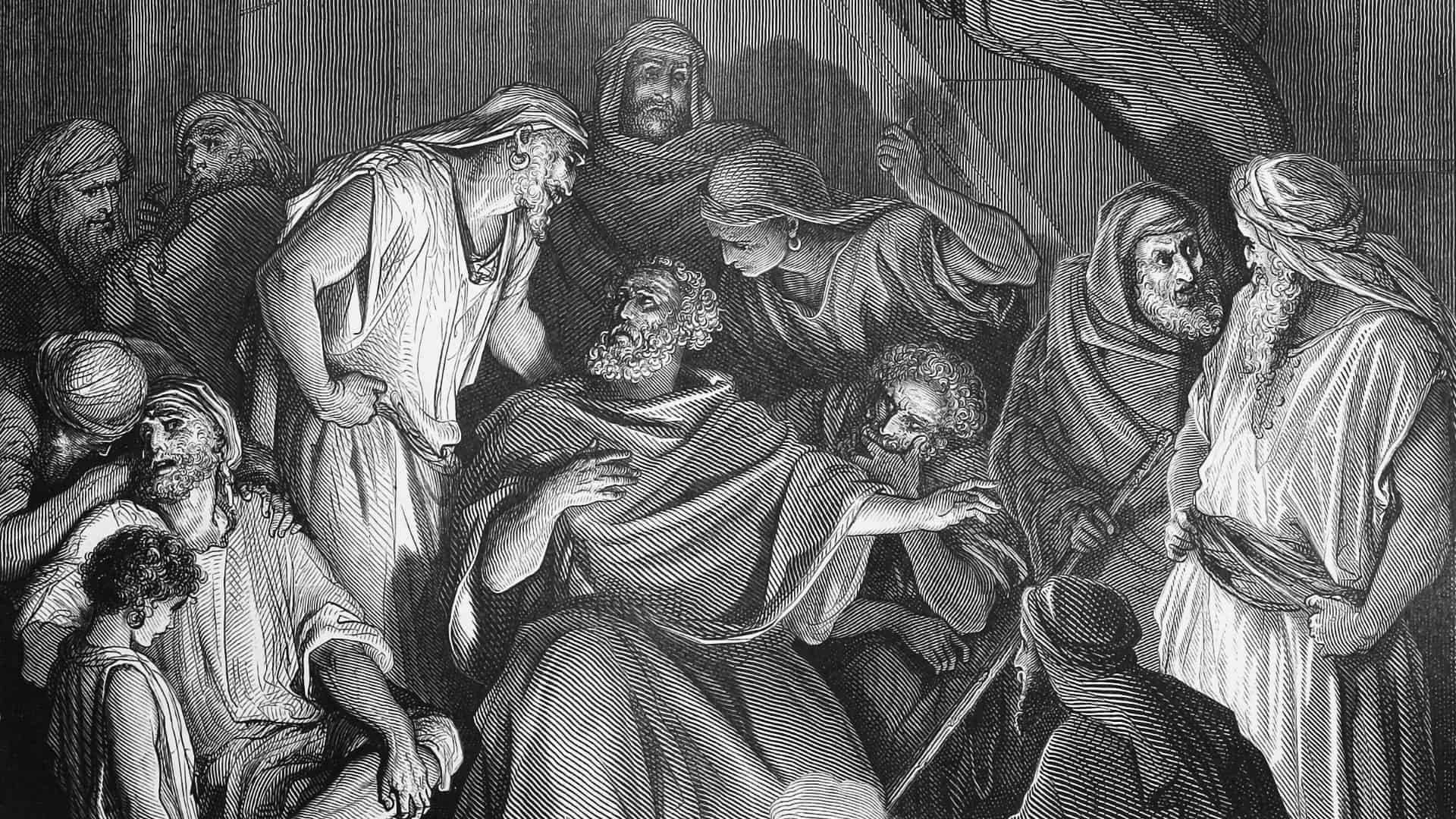The Coming of the King (Mark 11:1-26)

This morning’s passage is one that’s important on many levels. It’s got layers. It’s like one of those movies that has a plot, but underneath the plot are all these layers of meaning, and the more you look the more you see. It’s got surprises. Just when you think it’s going one way, it goes another. It’s puzzling at parts. This is a passage that gets under your skin.
But when you look at this passage you encounter a message that is just as important for us today as it was for the people who are in this story. The more I looked at this passage, the more I realized that it’s exactly what I need, and what you need as well.
So let me try to lead you to understand the two things that this passage is showing us. And then let me spend just a few minutes applying this to us today, and then we’re done.
The Coming of the Deliverer-King
If you’ve been with us so far as we’ve been going through Mark, you know that the tension has been building. Jesus has told his disciples:
“We are going up to Jerusalem,” he said, “and the Son of Man will be delivered over to the chief priests and the teachers of the law. They will condemn him to death and will hand him over to the Gentiles, who will mock him and spit on him, flog him and kill him. Three days later he will rise.” (Mark 10:33-34)
You can picture what it would have been like for Jesus and the disciples as they join the massive crowds on the way to Jerusalem. They knew that things were coming to a head. Up until now Jesus had been avoiding confrontation with the religious leaders. Now he was heading right towards a head-on collision with them that would cost him his life.
So picture them as they travel from Jericho to Jerusalem. It was mandatory for all male Jews to go up to Jerusalem for the feasts of Pentecost, Tabernacles and Passover. Passover was the most popular. The population of Jerusalem tripled in size. You would have been with tens of thousands of people walking to Jerusalem to celebrate that God miraculously delivered Israel from bondage in Egypt.
Jericho is the lowest city on earth, 800 feet below sea level. Jerusalem is only about a dozen miles away, but is nearly 3,000 feet above sea level. The road goes through a hot, dry desert. Suddenly, as you approach Jerusalem, you would see the first signs of vegetation and the glorious sight of Jerusalem itself. You would see the temple – the place where God had chosen to place his name and present, where he assured Israel of forgiveness. The pilgrims would be singing the songs of ascent from the Psalms. The whole experience would take your breath away.
As Jesus and his disciples experience this, something strange happens. The entire book of Mark, Jesus has never gone anywhere except on his own two feet or in a boat. He’s walked everywhere, except on water – well, even then he’s walked sometimes. But here he asks his disciples to get a colt, a young donkey, on which nobody has ever sat. As he approaches Jerusalem, the crowds spread their cloaks on the road. What’s that about? In 2 Kings 9, Jehu is made king over Israel, and we read, “They quickly took their cloaks and spread them under him on the bare steps. Then they blew the trumpet and shouted, ‘Jehu is king!'” (2 Kings 9:13). You don’t throw cloaks on the dusty, stony road for just anyone. You do it for royalty.
They’re also spreading branches and singing, “Blessed is the coming kingdom of our father David!” (Mark 11:10). Palm branches were a symbol of Jewish nationality and victory. Two hundred years before, Judas Maccabaeus defeated a Syrian king. He entered Jerusalem and cleansed and rebuilt the Temple. The people waved ivy and palm branches and sang hymns of praise. Judas started a royal dynasty that lasted a hundred years.
Put this all together. Jesus’ followers believe that he is the true and rightful king of Israel, come to Jerusalem to be seen as such. It’s the time of the Passover, the time of hope and remembrance of freedom. As Jesus arrives, Mark is screaming for us to realize the significance of what’s happening. To really understand, you have to know what the prophet Zechariah had predicted five hundred years earlier. Zechariah had written:
Rejoice greatly, Daughter Zion!
Shout, Daughter Jerusalem!
See, your king comes to you,
righteous and having salvation,
lowly and riding on a donkey,
on a colt, the foal of a donkey.
I will take away the chariots from Ephraim
and the warhorses from Jerusalem,
and the battle bow will be broken.
He will proclaim peace to the nations.
His rule will extend from sea to sea
and from the River to the ends of the earth.
(Zechariah 9:9-10)
The promised deliverer-king is finally coming to Jerusalem. Psalm 72 said of him:
May he rule from sea to sea
and from the River to the ends of the earth.
May all kings bow down to him
and all nations serve him.
For he will deliver the needy who cry out,
the afflicted who have no one to help.
He will take pity on the weak and the needy
and save the needy from death.
May his name endure forever;
may it continue as long as the sun.
Then all nations will be blessed through him,
and they will call him blessed.
(Psalm 72:8, 11-13, 17)
Mark has been asking us to consider the question, “Who is Jesus?” Jared Wilson writes:
No man is probably more misunderstood than Jesus…We’ve spent decades selling a Jesus cast in our own image…The quasi-Puritan Jesus liked to smack you on the knuckles with a ruler when you got out of line. Later, we received Postcard Jesus – the Coppertoned, blond-haired blank-stare Jesus of the gold-framed portrait, a bland two-dimensional portrait occupying moral tales that help us to be better people. This flat portrait evolved into a Get-Out-of-Hell-Free Jesus, and this Jesus has inspired millions to say a prayer to get his forgiveness – and then go on living lives devoid of his presence…. Today we have an amalgamation of all – and more – of these Jesuses running rampant in the world and in the church… We’ve settled for the glossy portrait. We’ve used him, made him into types and stereotypes, taken his message out of context and made it about being a better person or being cool or helping us to help ourselves. (Your Jesus Is Too Safe)
Nobody is more misunderstood than Jesus. This morning’s passage is helping us to understand who Jesus is. He is more than a great teacher. He’s not just someone who was especially in tune with God’s presence and power. He is more than just our personal Lord and Savior. He is the long-promised king, the hope of the ages, the king who arrives to reign over the entire earth. That’s the first thing Mark is telling us in this passage. Jesus is the promised deliverer-king.
Before Peace, Judgment
But the second thing Mark tells us is that Jesus is not the king we would expect. They arrive in Jerusalem, and Jesus looks around at the temple. What happens? “He looked around at everything, but since it was already late, he went out to Bethany with the Twelve” (Mark 11:11). Talk about anticlimax. The tension has been building. You expect something to happen. And then this? It’s baffling.
Then there’s this incident with the fig tree. This fig tree has given people trouble for years. Jesus sees a fig tree from a distance. He goes to see if there’s any fruit on it. It’s not the time for fruit, but he curses it anyway, and the next day it’s withered. At first glance it looks like Jesus is being unreasonable and petulant. It’s the only miracle in the gospels in which Jesus brings death instead of life. What do you make of the fig tree?
And then Jesus goes into the temple and drives out the money changers and those who sell pigeons. What’s that about? It’s been misunderstood for years. People often think that it’s about selling things in the church, which I think misses the point of what’s really going on here.
This all looks baffling at first – until you understand what’s really happening here. The prophet Malachi had written:
“I will send my messenger, who will prepare the way before me. Then suddenly the Lord you are seeking will come to his temple; the messenger of the covenant, whom you desire, will come,” says the LORD Almighty.
But who can endure the day of his coming? Who can stand when he appears? For he will be like a refiner’s fire or a launderer’s soap. He will sit as a refiner and purifier of silver; he will purify the Levites and refine them like gold and silver. Then the LORD will have men who will bring offerings in righteousness, and the offerings of Judah and Jerusalem will be acceptable to the LORD, as in days gone by, as in former years. (Malachi 3:1-4)
What was Malachi saying? Israel had expected that when the Lord came, it would be good news. Malachi said that God would indeed appear in the temple one day, but not only in blessing. He would come in judgment. “Who can endure the day of his coming?” he asks. When the Lord comes to his temple, Malachi said that he would purify and he would judge.
In the passage we’ve been looking at this morning, the Lord has come to his temple. He came not as a pilgrim but as the sovereign Lord who suddenly comes to his temple. He looks examines it as one who has come to purify and to judge.
What about the fig tree? What’s that about? The key to understanding this is to realize that it’s actually not about the fig tree at all. It’s an enacted parable. Mark places it before and after he judges the temple, so he can explain what’s actually happening here.
You see, it wasn’t the season for fruit. But as the leaves appear, there are usually small green figs forming as well that you can eat. This tree had all the appearance of having fruit despite it being early. Yet it as all an empty show. This was a fruitless, barren tree. It had all the appearance of health but had no real fruit. Do you see what Jesus is saying? It was a visual parable for the temple: lots of activity, and the appearance of life, with no substance. The fig tree is all about Jesus appearing in the temple, and judging it as lifeless. Jesus arrives at the promised deliverer-king. But before he brings peace, he brings judgment.
The temple was a busy place. At Passover there would have been thousands of people there. There would be hundreds of tables to sell animals for the sacrifices, and hundreds of money changers. The historian Josephus tells us that in one Passover week one year, 255,000 lambs were bought, sold, and sacrificed. You know the financial trading floors, how loud and busy and chaotic they used to be? They were probably nothing compared to the temple during the week of Passover.
The temple was at the very center of their national faith and identity. It represented the very presence of God. It went to the very heart of their relationship with God. Jesus looks at it as the long-awaited king and sees that it looks alive, but it’s diseased and blighted. The place of prayer for Gentiles had become anything but that. It was, Jesus said, “a den of robbers.” He’s quoting from Jeremiah 7 there. It’s really not about the buying and selling that was taking place. He’s quoting from a passage that talks about the mindset that you can:
…steal and murder, commit adultery and perjury, burn incense to Baal and follow other gods you have not known, and then come and stand before me in this house, which bears my Name, and say, “We are safe”–safe to do all these detestable things? Has this house, which bears my Name, become a den of robbers to you? But I have been watching! declares the LORD. (Jeremiah 7:9-11)
Jesus pronounces judgment on the temple as he curses the fig tree, and when he overturns tables he’s again pronouncing judgment. As Malachi said, “Then suddenly the Lord you are seeking will come to his temple…But who can endure the day of his coming? Who can stand when he appears?”
If this is the case, it’s very depressing. I hope we understand today who Jesus is. He’s the king, the Messiah, the one who comes to rule the whole earth, to bless the nations, to deliver the needy. But he doesn’t come only as the deliverer-king. He also comes to purify and to judge. He finds lots of religious activity, but no life. Where is the hope in all of this?
The hope for us is found in the last few verses of this passage:
“Have faith in God,” Jesus answered. “Truly I tell you, if you say to this mountain, ‘Go, throw yourself into the sea,’ and do not doubt in your heart but believe that what you say will happen, it will be done for you. Therefore I tell you, whatever you ask for in prayer, believe that you have received it, and it will be yours.” (Mark 11:22-24)
What is this? Is Jesus switching subjects and giving a lesson on prayer? No. Actually, Jesus has just pronounced judgment on the Temple. The prayer that should be happening there isn’t. It’s no longer going to be the locus of prayer. In just a few short years it’s going to be destroyed.
But Jesus envisioned a future without a temple. In its place would be a new praying community. Instead of only the appearance of life, this praying community would demonstrate mountain-moving faith centered on Jesus, who became the new and better temple and the sacrifice for our sins.
Have you seen Jesus as the promised deliverer-king? Have you realized that he sees through our religious appearances; that all our busyness and activity can’t hide the lack of true spiritual life? “But who can endure the day of his coming? Who can stand when he appears?” Only those who are part of this praying community, who understand that the sacrifice Malachi talked about – “Then the LORD will have men who will bring offerings in righteousness, and the offerings of Judah and Jerusalem will be acceptable to the LORD, as in days gone by, as in former years” – that this sacrifice is Jesus himself.





